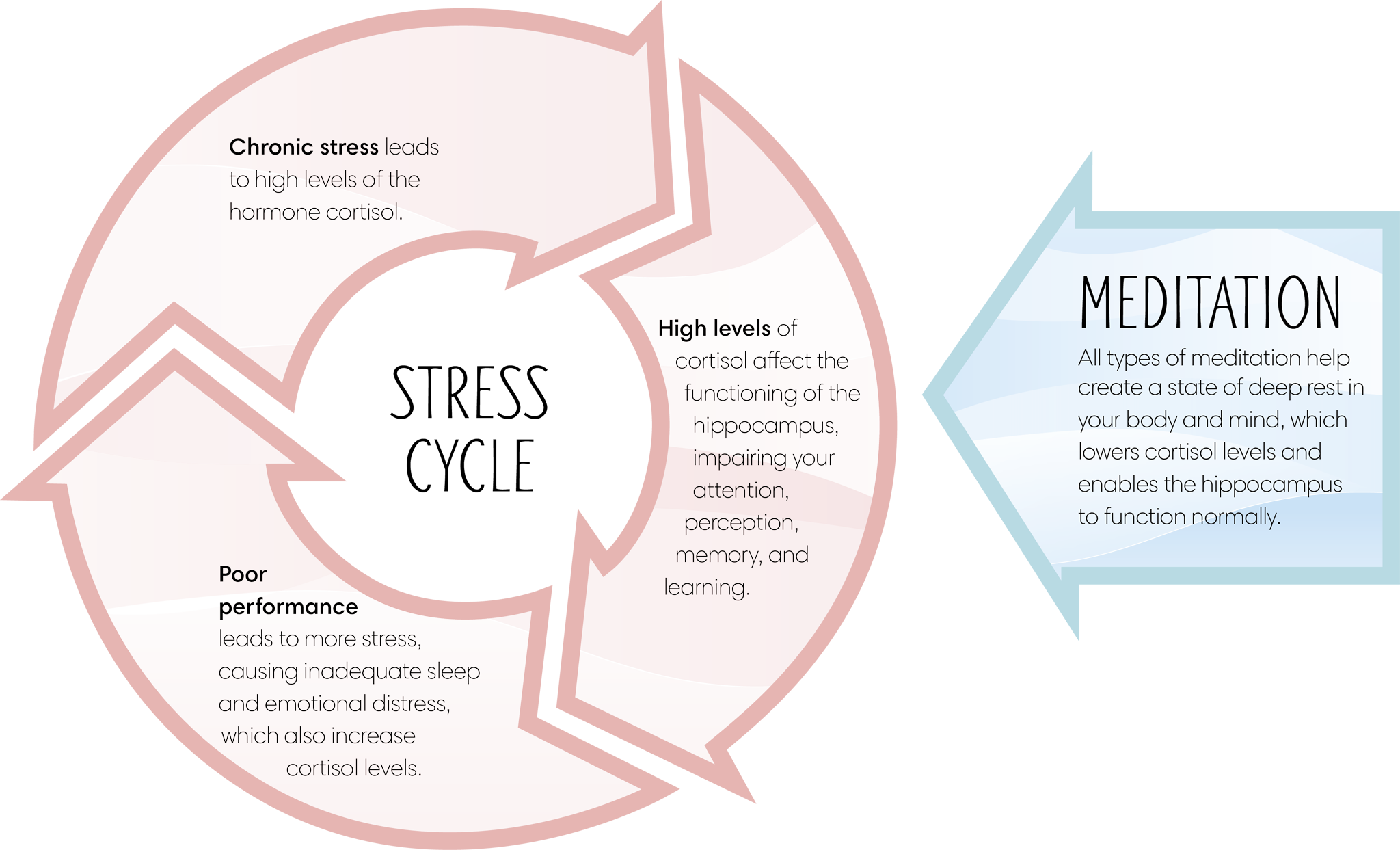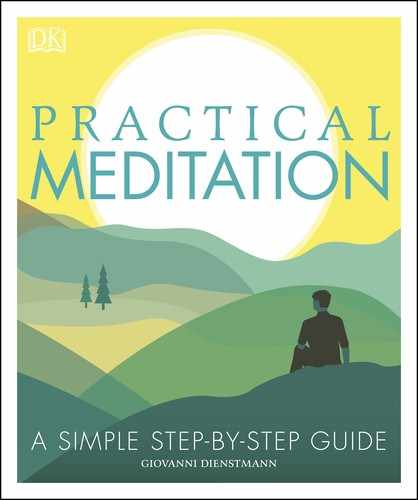THE ZEN YOUR BODY NEEDS
Meditation and stress
Stress is a normal and necessary part of life, but too much stress can have a disastrous impact on our bodies. By giving you the tools to tackle stress both physically and emotionally, meditation helps you live a healthier life.
Whatever it stems from, stress is the feeling that you can’t cope with what you’re facing, and it can contribute to many health problems—from upsetting your digestive system and sleep to encouraging unhealthy habits, such as drinking too much alcohol and eating a poor diet. In fact, it has been estimated that the majority of doctor’s visits are stress-related.
By improving your skills of concentration, awareness, and relaxation, and your ability to choose what to focus on and manage your emotions (see here), meditation equips you to deal with stress in daily life, paving the way for a healthier mind and body. Meditation is also proven to reduce levels of the stress hormone cortisol, which is released as part of the fight-or-flight response. If the body’s relaxation response doesn’t get a chance to take effect before the next stressor, your cortisol levels remain elevated and you can enter a state of chronic stress, which has many negative outcomes for the body. Fortunately, meditation can break this cycle (see below).

Breaking the stress cycle
Meditating regularly helps to disrupt the chronic stress cycle. As a result, you can perform at your peak.
STRESS BUSTING
As well as giving you the skills to tackle stress in your day-to-day life, meditation has been scientifically proven to reduce some of the physiological and psychological symptoms of stress.

DECREASES REACTIVITY TO STRESS
Mindfulness has been found to be particularly good at decreasing our reactivity to stress, according to a 2015 British meta-analysis of research into meditation. As a result, we are able to experience stress in a more measured way.

SLOWS AGEING
The shortening of telomeres, protective “caps” that stop DNA unravelling, has been linked to ageing. By reducing stress arousal, some forms of meditation, such as Mindfulness, have a beneficial effect on telomere length, according to an American study published in 2009.

BOOSTS IMMUNITY
Stress can weaken the immune system, but meditation has been shown to counter this effect. A 2003 American study compared the immune response of meditators and nonmeditators to a flu vaccine and found that the meditators had greater immune function.

REDUCES SYMPTOMS OF PSYCHOLOGICAL STRESS
A 2014 American meta-analysis showed that Mindfulness Meditation programs decreased elements of stress, such as anxiety and pain. Another 2014 American meta-analysis found that the higher the level of anxiety participants reported, the greater the impact of meditation.

LOWERS BLOOD PRESSURE
High blood pressure is one of the many negative side-effects of stress, but a 2012 American study conducted between 1998 and 2007 found that blood pressure dropped among meditators. Meditators also had reduced risk of cardiovascular events, such as heart attacks.

PROMOTES CALMNESS
Building meditation into your day can make you calmer. As part of a German study published in 2012, participants aged 18–65 who suffered from high levels of stress took part in a mindfulness-based walking program. The majority of participants reported feeling significantly calmer within 4 weeks.
